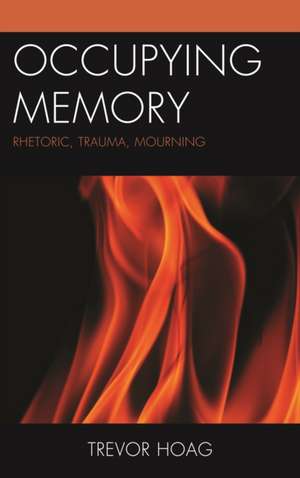Occupying Memory: Reading Trauma and Memory
Autor Trevor Hoagen Limba Engleză Hardback – 14 noi 2018
| Toate formatele și edițiile | Preț | Express |
|---|---|---|
| Paperback (1) | 353.46 lei 6-8 săpt. | |
| Lexington Books – 3 iun 2021 | 353.46 lei 6-8 săpt. | |
| Hardback (1) | 685.85 lei 6-8 săpt. | |
| Rowman & Littlefield – 14 noi 2018 | 685.85 lei 6-8 săpt. |
Preț: 685.85 lei
Preț vechi: 890.72 lei
-23% Nou
Puncte Express: 1029
Preț estimativ în valută:
131.25€ • 136.53$ • 108.36£
131.25€ • 136.53$ • 108.36£
Carte tipărită la comandă
Livrare economică 14-28 aprilie
Preluare comenzi: 021 569.72.76
Specificații
ISBN-13: 9781498556569
ISBN-10: 1498556566
Pagini: 248
Dimensiuni: 152 x 229 x 22 mm
Greutate: 0.52 kg
Editura: Rowman & Littlefield
Seria Reading Trauma and Memory
ISBN-10: 1498556566
Pagini: 248
Dimensiuni: 152 x 229 x 22 mm
Greutate: 0.52 kg
Editura: Rowman & Littlefield
Seria Reading Trauma and Memory
Notă biografică
By Trevor Hoag
Descriere
Occupying Memory investigates the forces of trauma and mourning as deeply rhetorical to account for their capacity to seize one's life. With the Occupy Movement as its guide, the work strives to challenge hegemonic power by keeping memory "in question" and receptive to alternative futures to come.















